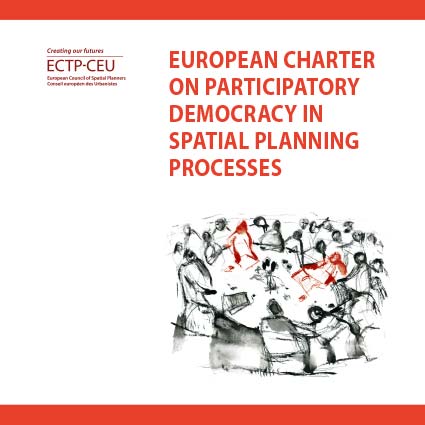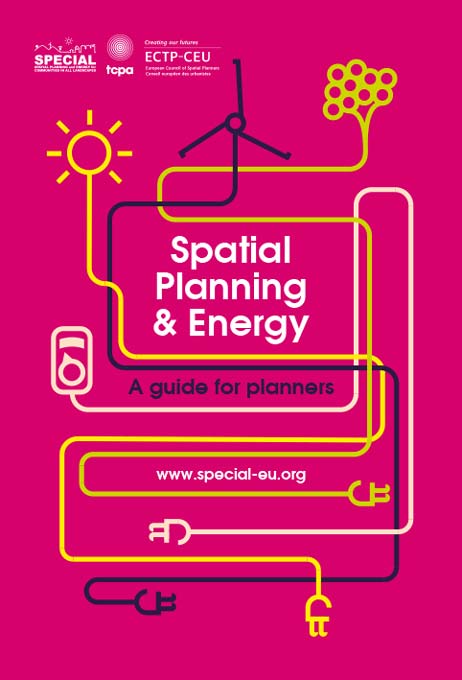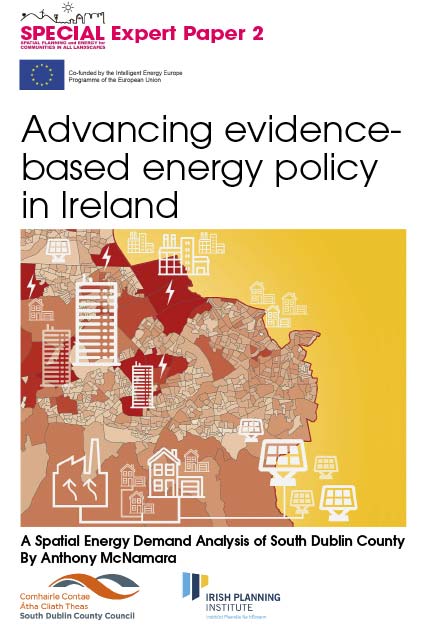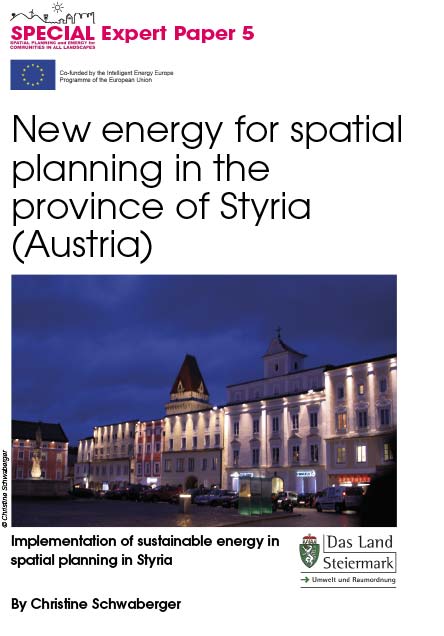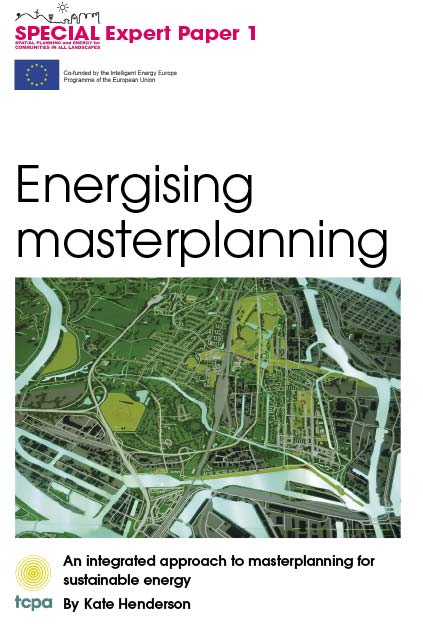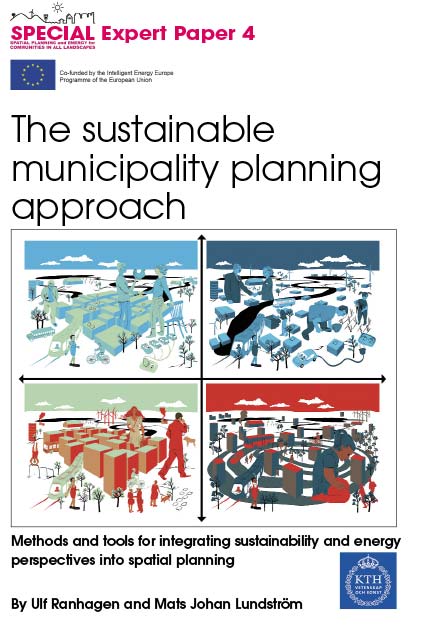ECTP-CEU

Assurb opera in un ambito allargato dove si guarda a fornire consulenza, tutela, e sostegno a tutti gli urbanisti europei, sia per rafforzare il profilo di una professione, quella dl pianificatore, in forte evoluzione e chiamata, sia per rispondere alle esigenze di una società in bilico tra spinte verso la globalizzazione e la ricerca di autonomia e regionalizzazione.
ECTP-CEU
Unica istituzione europea che rappresenta i pianificatori urbani e territoriali, ha tra i suoi obiettivi principali la promozione della professione attraverso la divulgazione di esempi e di pratiche nei diversi paesi europei. E’ un dato di fatto che pur cambiando le normative di riferimento o il quadro istituzionale, simili sono i problemi e le sfide che riguardano le città e le regioni in Europa. La necessità di uno sviluppo dei centri urbani, della salvaguardia delle eredità storiche o degli ambienti naturali, le trasformazioni sociali ed economiche, ma anche tecnologiche che sempre più rapidamente trasformano le strutture urbane, così come le sfide dettate dai cambiamenti climatici e dall’esigenza non solo di mettere in sicurezza bensì di intervenire con azioni di prevenzione e di mitigazione e non ultimo il necessario coinvolgimento di soggetti diversi nei processi di piano, queste sono alcune tra le sfide più importanti che attualmente i pianificatori europei sono chiamati ad affrontare.
Referente Delegato per ASSURB è Markus Hedorfer.
ABOUT THE ECTP-CEU
- European Council of Spatial Planners - Conseil européen des Urbanistes
Founded in 1985, ECTP-CEU (European Council of Spatial Planners - Conseil Européen des Urbanistes) brings together 27 professional town planning associations and institutes from 25 European countries as well as corresponding members. It is an umbrella association providing its members with a common framework to promote the visibility, recognition of the important societal role and practice of planning and urban development in Europe and its teaching, continuing professional development and the definition of professional responsibilities.
ECTP-CEU sets standards of education and conduct for the planning profession; engages in dialogue with local, national and European government, identifies, and rewards examples of good planning all over Europe in particular through its "Awards" (see infra "events").
MISSION / AIMS AND OBJECTIVES
The European Council of Spatial Planners - Conseil européen des urbanistes (ECTP-CEU), founded in 1985, brings together 24 professional town planning associations and institutes from 22 European countries. It is an umbrella association providing its members with a common framework for planning practice, planning education, continuing professional development and the definition of professional responsibilities. ECTP sets standards of education and conduct for the planning profession; identifies, celebrates and rewards examples of good planning all over Europe, and engages in dialogue with local, national and European government. Planners are enablers and specialists in spatial analysis and interaction, committed to working with other professionals across disciplinary boundaries to advance the sustainable development of the both the natural and the built environment. The current work of the Council includes:
- Dissemination of the Charter of European Planning;
- Dissemination of the European Charter on Participatory Democracy in spatial planning process
- The design of a Vision enhancing the quality and efficiency of cities and urban life in Europe;
- The production of a guide to spatial planning and territorial cohesion;
- The publishing of the proceedings of major conferences on European spatial development and the preparation of forthcoming conferences;
- The preparation of the European Urban and Regional Planning Awards.
- Introduction to ECTP-CEU: aims and objectives, activities, members, officers and contact details
TOWARDS THE ESTABLISHMENT OF COMMON RULES FOR THE SPATIAL PLANNING PROFESSION In its founding Charter (the Charter of Amsterdam in 1985), ECTP-CEUmember associations and institutes laid down the basis for establishing common rules for the planning profession by specifying the field andnature of the professional spatial planner's activities; educational andtraining criteria; and professional and conduct requirements.
- The nature and the fields of activity for the spatial planning profession which are common to all member countries of Europe are defined in Annex A of the Charter.
- A minimum common core for education and training needed for the planning profession is defined in Appendix B of the Charter. This is a preliminary step towards the armonisation of national requirements regarding the education, training and professional conduct of spatial planners with the view to achieve, in due course, mutual recognition of membership requirements and qualifications among EU member states.
- A professional code of ethics establishing criteria of professional competence and conduct which will be observed by all members of national associations and institutes in the European Council of Spatial Planners is defined in Annex C of the Charter.
The complete text of the Founding Charter and a history of ECTP-CEU are available from the Secretariat and on the website: http://www.ectp-ceu.eu
VISION 2020
Working Group Chair: Joris Scheers
Working Group members:
Joris Scheers (ECTP-CEU, VRP Belgium), Virna Bussadori (ASSURB Italy), Geza Salamin (MUT Hungary), Brendan Allen (IPI Ireland), Philippe Doucet (SFU France), Richard Blyth (RTPI United Kingdom) and Kent G. Dagsland Håkull (FKP Norway)
ECTP-CEU AS THE EUROPEAN SPATIAL PLANNING REFERENCE ORGANISATION IN 2020
Basis
In a rapidly changing European society, spatial planners need to provide solid mid and long term visions to sustain and improve the quality of life in neighbourhoods, cities and territories. As we revised the Charter of Athens in 2003 and in 2013, we need to keep pace with the changing social, economic and political contexts and revise the ECTP-CEU’s organisation.
Challenges such as migration, climate change and environmental degradation ask for coherent solutions, based on bringing together a diverse pallet of expertise. The spatial organisation of the environment we live in, remains our core focus. With our 35th anniversary within sight, we as ECTP-CEU need to be prepared to adequately adapt ourselves to a changing society and have the ambition to become the reference organisation in Europe when it comes to spatial planning practice. This consultation paper therefore sets out, as a basis for discussion, some key principles that allow the ECTP-CEU to become widely recognized as such.
Historical basis and situation today
Draft document discussed at the October Autumn 2016 General Assembly in Ljubljana.
Working Group created February 2017
ACTIONS
WORKING GROUPS
QUALIFICATION RECOGNITION
Taking forward work to facilitate the free movement of planners: an ECTP-CEU working group on the recognition of spatial qualification in Europe is working with AESOP (Association of European Schools of Planning) and EFLA (European Federation of Landscape Architects) towards recognition of professional qualifications and education, maintaining and developing negotiations with DG Internal Market to obtain recognition for planning as a profession and continuing work to establish a common basis for professional practice through the Education Task Force and other forums.
VISION FOR SPATIAL PLANNING OF THE XXI CENTURY
The ECTP-CEU’s vision for Spatial Planning in the 21st century is recorded in six publications: "Try it this way", "Fifteen Steps towards Territorial Cohesion" , “A centenary of spatial planning in Europe” "The Charter of European Planning" , the European Charter on Participatory Democracy in spatial planning process”, Spatial Planning & Energy, available in several European languages.
YOUNG PLANNERS
The ECTP-CEU has established a special working group to offer young planners the opportunity to create a network across Europe and prepare the future of spatial planning in Europe, drawing on its policy work on territorial cohesion and its economic, social and environmental dimensions.
GIS&3D
Like all disciplines, planning needs to use new tools, in particular the GIS (Geographic Information System) and 3D modelling.
In this regard, ECTP-CEU participates since 2011, in the “Imagina Forum” held annually in Monaco presenting the latest research techniques and software for GIS and 3D. In 2011, ECTP-CEU co-chaired the event with FNAU (Fédération Nationale des Agences d'Urbanisme, France), the SRL (Vereinigung für Stadt-, Regional-und Landesplanung, Germany) and the University of Coimbra, Portugal.
CLIMATE CHANGE
During 2012- 2016 the Working group on Climate Changes involved ECTP-CEU in Intelligent Energy in Europe programme, developed by the EU,. We were particularly involved in SPECIAL project with TCPA, and published the guide for planners on Spatial planning & Energy.
▪ EVENTS & CALENDAR
AWARDS
Since the early 1990’s the ECTP-CEU has organised, the European Urban and Regional Planning Awards every two years. Since 2010, these awards have been supported by and are in collaboration with the Committee of the Regions of the European Union where the ceremony is held concurrently with the COTER (Commission for Territorial Cohesion) assembly of local and regional elected at their Brussels location. The ECTP-CEU is also setting up for 2013 a European Spatial Planners’ Award.
CONFERENCE
ECTP-CEU regularly organises conferences , sometimes during its General Assembly, and has, amongst others, organised a series of three conferences in London, Paris and Llubjana on "Territorial Cohesion in Europe", participated in the Centennial of the SFU (Société Française des Urbanistes) and is actively involved in events related to the Decade of Planning (see below).
CALENDAR
ECTP-CEU publishes on its website a calendar of European and Worldwide events related to spatial planning while providing targeted research (by theme, date, organization, etc.).
▪ PUBLICATIONS
In addition to the above mentioned publications (see "Vision for Spatial Planning of the XXI century"), ECTP-CEU publishes the result of the conferences self-organised or in which ECTP-CEU participated and publishes a Newsletter in relation to its website.
▪ PROFESSIONAL ASSISTANCE
ECTP-CEU is gradually setting up a registry of cross-border experts and plans which will provide, through its website, a tailored selection of calls for tender.
NETWORK
The ECTP has relationships with the following institutions, with representative delegates who report to the General Assembly:
-
The Committee of the Regions of the European Union. (In addition to the collaboration for the Awards); ECTP-CEU contributed to the Toledo Declaration on integrated regeneration issued by the Committee of the Regions;
-
The EU Network of Territorial Cohesion, NTCCP (Network of Territorial Cohesion Contact Points) and UDG (Urban Development Group).
-
The Council of Europe and CEMAT (the Conference of Ministers of Spatial/Planning): ECTP-CEU has undertaken to translate the CEMAT glossary into several European languages;
-
European Heritage Alliance 3.3
-
The European Biennial of Towns and Town Planners;
-
Other international associations dealing with Spatial Planning: AESOP, EFLA, INTA (International Urban Development Association), ICOMOS (International Council on Monuments and Sites), ISOCARP (International Society of City and Regional Planners) with who are organised events such as the Decade of Planning (with all) or Summer courses (with AESOP, IFHP and ISOCARP) and manages a common calendar for conferences, meetings and seminars;
-
UN-HABITAT (United Nations Habitat) ;
-
The FIU (Federación Iberoamericana de Urbanistas) was established with the support of local authorities, AETU (Spain), AUP (Portugal) and ECTP-CEU;
-
The WTPD (World Town Planning Day) on-line conference;
-
As member of the GPN (Global Planners Network), ECTP-CEU supports the proposal from its UK member, RTPI, to create a web portal for planners to share experience.
CONTACT / SECRETARIAT
ECTP-CEU Secretariat - Secrétariat ECTP-CEU
ECTP-CEU (aisbl) - European Council of Spatial Planners / Conseil Européen des Urbanistes
Brussels Commissioner for Europe and International Organisations Offices
Avenue d’Auderghem 63 - B-1040 Bruxelles / Oudergemlaan 63, B-1040 Brussel
Questo indirizzo email è protetto dagli spambots. È necessario abilitare JavaScript per vederlo. www.ectp-ceu.eu +32 (0) 470 350 432
MEMBERS
ECTP-CEU is composed of full members (European national planners institutes & associations) and corresponding members such as regions, municipalities, faculties, associations related with urban and regional planning, planning offices, and planning research organizations. With the exception of voting rights at the General Assembly, corresponding members also participate in all ECTP-CEU activities. ECTP-CEU EXECUTIVE COMMITTEE President: Joris Scheers (VRP), Vice President: Henk van der Kamp (IPI) Secretary-General: Dominique Lancrenon (SFU), Treasurer: Michael Stein (SFR) , Administrators: Vincent Goodstadt (RTPI), Ignacio Pemán Gavín (AETU), João M. P. Teixeira (AUP).
ECTP-CEU
Unica istituzione europea che rappresenta i pianificatori urbani e territoriali, ha tra i suoi obiettivi principali la promozione della professione attraverso la divulgazione di esempi e di pratiche nei diversi paesi europei. E’ un dato di fatto che pur cambiando le normative di riferimento o il quadro istituzionale, simili sono i problemi e le sfide che riguardano le città e le regioni in Europa. La necessità di uno sviluppo dei centri urbani, della salvaguardia delle eredità storiche o degli ambienti naturali, le trasformazioni sociali ed economiche, ma anche tecnologiche che sempre più rapidamente trasformano le strutture urbane, così come le sfide dettate dai cambiamenti climatici e dall’esigenza non solo di mettere in sicurezza bensì di intervenire con azioni di prevenzione e di mitigazione e non ultimo il necessario coinvolgimento di soggetti diversi nei processi di piano, queste sono alcune tra le sfide più importanti che attualmente i pianificatori europei sono chiamati ad affrontare.
Referente Delegato per ASSURB è Markus Hedorfer.
ABOUT THE ECTP-CEU
MISSION / AIMS AND OBJECTIVES
- Dissemination of the Charter of European Planning;
- Dissemination of the European Charter on Participatory Democracy in spatial planning process
- The design of a Vision enhancing the quality and efficiency of cities and urban life in Europe;
- The production of a guide to spatial planning and territorial cohesion;
- The publishing of the proceedings of major conferences on European spatial development and the preparation of forthcoming conferences;
- The preparation of the European Urban and Regional Planning Awards.
- Introduction to ECTP-CEU: aims and objectives, activities, members, officers and contact details
- The nature and the fields of activity for the spatial planning profession which are common to all member countries of Europe are defined in Annex A of the Charter.
- A minimum common core for education and training needed for the planning profession is defined in Appendix B of the Charter. This is a preliminary step towards the armonisation of national requirements regarding the education, training and professional conduct of spatial planners with the view to achieve, in due course, mutual recognition of membership requirements and qualifications among EU member states.
- A professional code of ethics establishing criteria of professional competence and conduct which will be observed by all members of national associations and institutes in the European Council of Spatial Planners is defined in Annex C of the Charter.
VISION 2020
ACTIONS
NETWORK
-
The Committee of the Regions of the European Union. (In addition to the collaboration for the Awards); ECTP-CEU contributed to the Toledo Declaration on integrated regeneration issued by the Committee of the Regions;
-
The EU Network of Territorial Cohesion, NTCCP (Network of Territorial Cohesion Contact Points) and UDG (Urban Development Group).
-
The Council of Europe and CEMAT (the Conference of Ministers of Spatial/Planning): ECTP-CEU has undertaken to translate the CEMAT glossary into several European languages;
-
European Heritage Alliance 3.3
-
The European Biennial of Towns and Town Planners;
-
Other international associations dealing with Spatial Planning: AESOP, EFLA, INTA (International Urban Development Association), ICOMOS (International Council on Monuments and Sites), ISOCARP (International Society of City and Regional Planners) with who are organised events such as the Decade of Planning (with all) or Summer courses (with AESOP, IFHP and ISOCARP) and manages a common calendar for conferences, meetings and seminars;
-
UN-HABITAT (United Nations Habitat) ;
-
The FIU (Federación Iberoamericana de Urbanistas) was established with the support of local authorities, AETU (Spain), AUP (Portugal) and ECTP-CEU;
-
The WTPD (World Town Planning Day) on-line conference;
-
As member of the GPN (Global Planners Network), ECTP-CEU supports the proposal from its UK member, RTPI, to create a web portal for planners to share experience.
CONTACT / SECRETARIAT
MEMBERS
DOCUMENTAZIONE CORRELATA
| # | Titolo | Dimensione | Scarica |
|---|---|---|---|
| ECTP-CEU_STATUTES | 42.81 kb |
Scarica
Apri |
PUBBLICAZIONI
| # | Titolo | Dimensione | Scarica |
|---|---|---|---|
| European Charter on Participatory Democracy English-final | 1.66 mb |
Scarica
Apri |
|
| TCPA_SPECIAL_ExpertP_Christine Schwaberger | 800.48 kb |
Scarica
Apri |
|
| TCPA_SPECIAL_ExpertP_Ulf Ranhagen and Mats Johan Lundstrom | 1.20 mb |
Scarica
Apri |
|
| TCPA_SPECIAL_ExpertP_Kate Henderson | 1.77 mb |
Scarica
Apri |
|
| TCPA_SPECIAL_ExpertP_Anthony McNamara | 1.44 mb |
Scarica
Apri |
|
| SPECIAL Pan-European Guide | 6.72 mb |
Scarica
Apri |
GALLERY
